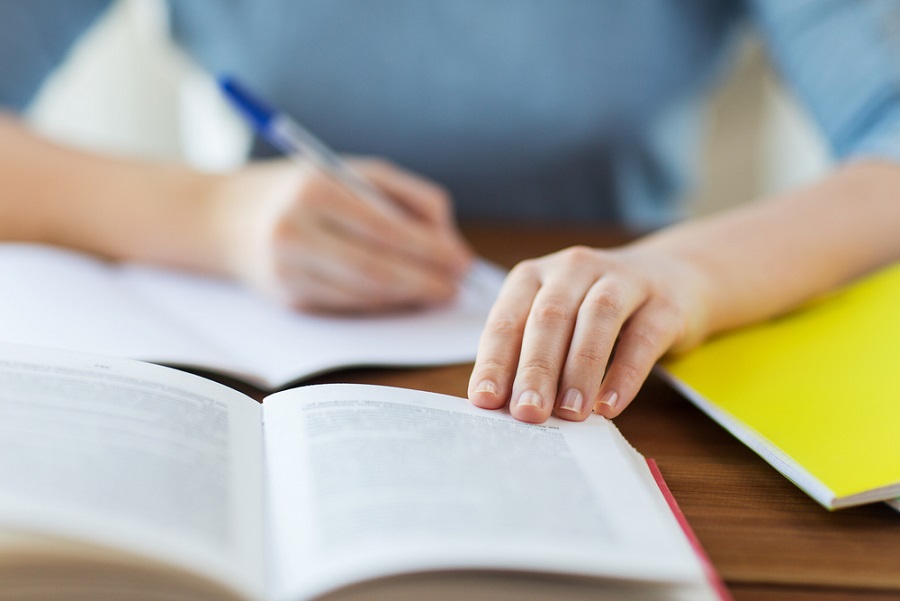- Home
- Blog
- Energy Boosters
- Eating for exams - what to eat to boost concentration and memory
Eating for exams - what to eat to boost concentration and memory
Written by Catherine Saxelby
on Friday, 06 August 2010.
Tagged: balanced diet, concentration, healthy eating, nutrition

Whether you're cramming for exams or working hard mentally on a gruelling report, the type and timing of your food can help you boost memory, improve concentration and achieve top results. Here's how.
6 ways to prepare well
Good nutrition in the lead up to exams will boost mental alertness and help you deal better with long hours of study and pre-test stress. Now's not the time to pig out on chocolate or snack on biscuits while you work. Try these 6 things:
1. enjoy regular meals.
2. stop for small snacks to keep up fuel to the brain.
Easy nutritious snacks to grab include yoghurt, a handful of nuts or nuts mixed with dried fruit, a bowl of cereal with milk, a banana or mandarin or other fresh fruit, sushi rolls, raisin toast with a little spread, 3-4 rice cakes or crispbread spread with peanut butter or cheese, hot milk and honey.
3. eat food rich in iron and zinc for improved memory and concentration.
These are red meat, fish and seafood (especially oysters), chicken, nuts and whole grains such as brown rice, grainy breads and wholegrain breakfast cereals.
4. eat plenty of vegetables, legumes, yeast spread, wheatgerm for their high concentration of B vitamins and minerals to keep your brain and nervous system in top order.
5. top up your omega-3 fats by eating fish including canned tuna, canned salmon, prawns and calamari. Alternatively look for the omega-3 enriched spreads, breads and eggs now on the market.
6. drink at least 8 glasses of fluid to stay hydrated and prevent fatigue.
Ideally most of this should come from water, but clear soup, tea, milk and juices also contribute.

Pre-exam meal ideas
Aim for a light meal or snack that provides carbohydrate for glucose to fuel the brain, combined with protein and a little of the 'healthy' fats. Make sure it is familiar food - don't eat anything unusual or that you have never tried before on the day of your big test.
For morning exams:
Have breakfast - many studies show that concentration, performance and memory are higher if you eat in the morning.
Try cereal and milk or toast with spread. If you can manage more than this, go for some fruit (fresh or canned), yoghurt, egg or baked beans on toast.
For afternoon exams:
Have a light lunch that won't have you nodding off with post-meal sleepiness:
A bowl of soup and bread roll
or
a sandwich or wrap filled with meat or chicken and salad.
Can't handle solid food?
Go for a liquid meal - blend your own smoothie or try one of the commercial liquid meals.
4 non-food study tips
- Take a short break every hour. Walk around, do some stretches or get some fresh air to clear your mind and recharge.
- Get enough sleep.
- Try to go to bed at around the same time each night and get up the same time in the morning - your body gets into a routine so sleep comes faster and you wake feeling better. If you can coincide your sleep with your exam timetable, so much the better.
- Decide whether you're most productive in the morning or in the evening and schedule intense revision for this peak time.
Caffeine - how much is too much?
Students often rely on coffee to help them study into the night or before a major exam.
Caffeine acts as a mild stimulant to the brain and nervous system, making you feel more alert and lessening the feeling of tiredness.
Too much, however, can be a trap. If you overdo caffeine, it can make you irritable, anxious, interfere with sleep and leave you with an upset stomach. And once you get dependent on caffeine, you can end up with a headache and a feeling of tiredness if you stop having it - caffeine withdrawal!
Generally no more than 300 mg caffeine a day is wise, which is equivalent to 3 or 4 cups instant coffee or 2 cups percolated or espresso a day.
So save the coffee for times when your enthusiasm is flagging and you need a boost. If you don't want it to keep you awake at night, try to have your last cup by 6pm. After that, switch to decaffeinated coffee or weak tea, which has approximately a third the caffeine of coffee.
Herbal infusions like peppermint or ginger tea offer a refreshing pick-me-up without the after-effects of caffeine.
Foodwatch
The Good Stuff
The Boring Stuff
© 2025 Foodwatch Australia. All rights reserved
Website by Joomstore eCommerce





